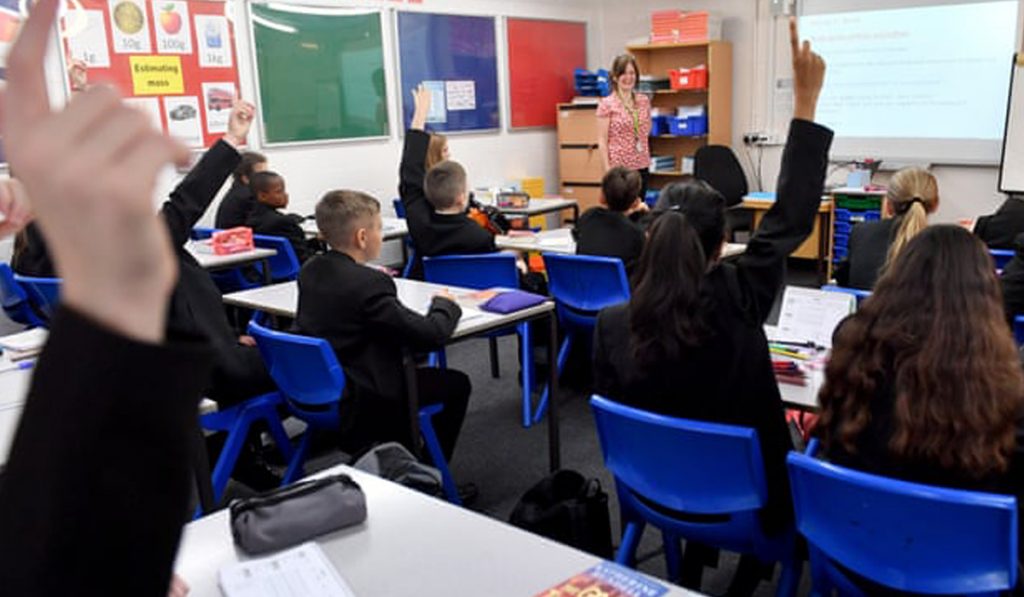Parents who offer to donate air filters that limit Covid transmission in their children’s classrooms are being turned down by some schools, say parents’ groups.
As headteachers report disruption caused by soaring staff absences, parents are buying high efficiency particulate air (Hepa) filters to supplement the 7,000 additional units that will be offered to schools in England by the Department for Education (DfE).
While some heads have accepted parents’ donations, others are prioritising cleaning regimes and opening windows, as official guidance does not specify the need for air filters and recommends schools use their own risk assessments.
Sarah Saul, the co-founder of parents group SafeEdforAll, said some schools were rejecting the free filters because of insufficient government guidance. She said: “I’ve encountered tens of schools which are forgoing layers of mitigation – including filters and ventilation improvements – because they have been poorly explained and are not mandated by the government. Rejecting free donations just doesn’t make any sense to us. We’re not blaming school leaders, we’re blaming the guidance that they’re trying to follow, wrongly.”
Schools in England say government not providing enough air purifiers
Gemma Sewell, the co-founder of Parents United UK, said: “More often, we see schools turning them down. One of the most common excuses is ‘if we accept it for your child’s classroom, that’s inequitable, because we can’t afford to install them in all our classrooms’.”
Karen Cudmore, from Kent, said she had offered to buy her children’s secondary schools CO2 monitors and Hepa filters after her 14-year-old daughter contracted long Covid early last year. “Both schools have said this isn’t part of government guidance and my children can continue to just wear masks if that makes them feel safe.”
Geoff Barton, the general secretary of the Association of School and College Leaders, said: “It is very kind of parents to offer to pay for air filters and we understand their concerns. But schools may understandably want to identify where the units are needed and then apply for the equipment that is being provided through the government scheme in the first instance.”
To qualify for a government air purifier, schools must show they have consistently poor CO2 levels. But, according to research by NASUWT, the teachers’ union, more than half of UK teachers (56%) do not have access to a CO2 monitor in their classroom.
One parent from Suffolk took her daughter out of lessons because of fears of rising infection among other children, after the headteacher rejected her Hepa donation. She said the academy trust had no plans to install filters.
Demands are growing for the DfE to fund units for all schools, amid discontent at leaving windows open during winter.
Patrick Roach, the NASUWT general secretary, said: “Efforts to ensure good ventilation in the fight against Covid should not be a lottery for schools. They should be guaranteed the necessary equipment, rather than being offered a chance to bid for an air purifier.”
The DfE said: “Air cleaning units are not needed in the vast majority of classrooms – only where there is poor ventilation that cannot be easily improved. Based on feedback from schools that there are only a small number of cases where good ventilation is not possible, we are supplying up to 8,000 air cleaning units from this week.”



